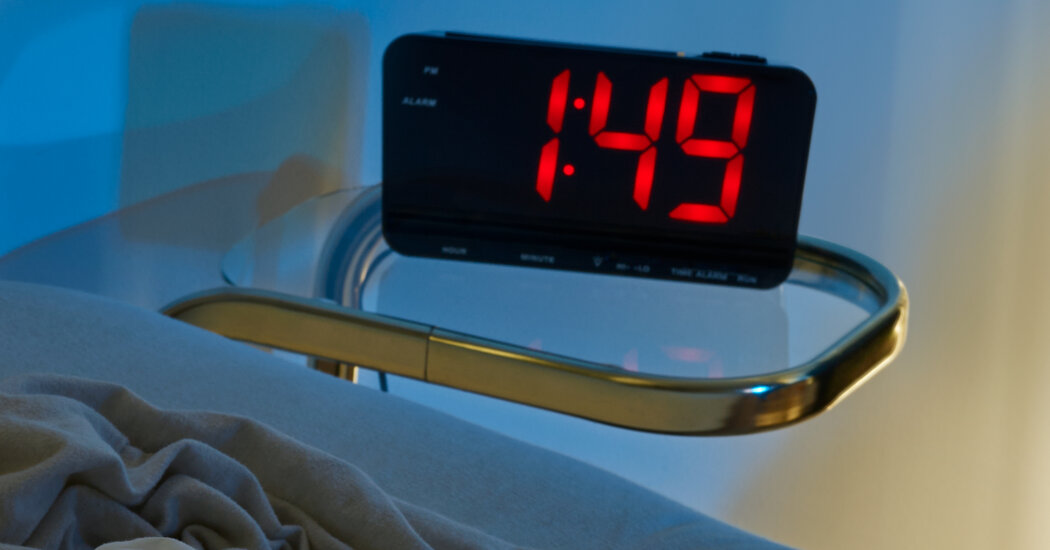
Stop listening to sleep experts
Long-term irregular sleep patterns in the general population are more likely to have high coronary artery calcium scores than those with less consistent sleep durations
After participants’ cardiovascular health was assessed during the same time frame, the researchers found those with irregular sleep durations — those that varied by 90 minutes to more than two hours within a week — were about 1.4 times more likely to have high coronary artery calcium scores compared with those with more consistent sleep durations. (This calcium score measures the amount of calcified plaque in arteries; a higher number increases the risk of some cardiovascular conditions.) The former group had more plaques and abnormal results from the blood vessel stiffness test.
Diabetes, cancer, cholesterol, heart failure, chronic obstructive pulmonary disease, chronic heart disease, depression, dementia, Parkinson’s, and arthritis were some of the diseases for which there was a higher risk.
The study has some additional limitations. White men were the majority of the subjects. The researchers say the civil servants also tend to be a little healthier than the general population. And the study relied on self-reported data, which is considered less reliable than if people were in a sleep study in which scientists could directly observe how the person was sleeping.
Sharon Cobb, who has worked on sleep research and was not involved with the new study, said it’s important because it provides more evidence that sleep and chronic conditions are related.
Other research has shown that sleep is a restorative process that, among other things, produces and regulates hormones in the body, explains Adam Knowlden, an associate professor of health science at the University of Alabama, who was not involved in the new research but is working on a different large sleep study.
Hormones regulate a wide range of bodily functions, such as appetite, metabolism, sex drive, blood pressure and heart rate. If the body doesn’t produce adequate hormones due to a lack of sleep, that is thought to cause chronic health problems in addition to things like fatigue, body aches, and blood pressure.
The association recommends adults get seven to nine hours of sleep each night, which is more likely if you have sound sleep hygiene. That involves going to bed at the same time each night, waking at the same time daily, avoiding caffeine after late morning, using your bedroom for sleep and intimacy only, avoiding screen usage before bed and sleeping in a dark, quiet and cool room.
The Impact of Poor Sleep Habits on Cardiovascular Diseases: A Multi-Epoch, One-Step Study and At-Home Study
The Centers for Disease Control and Prevention says that heart disease is the country’s number one killer. Someone in the US dies from cardiovascular disease every 34 seconds.
The eight items: Quit tobacco, eat better, get active, manage weight, manage blood pressure, control cholesterol, reduce blood sugar and get healthy sleep.
Participants wore a wristwatch to track their wake and sleep history during their sleep assessments. Participants also underwent an at-home sleep study to measure breathing, sleep stages, waking during the night and heart rate.
Poor sleep habits “are ubiquitous” among Americans, the study says, including among the study participants. More than sixty percent of them were found to sleep less than seven hours a night. An adult’s ideal sleep duration is seven to nine hours a night, according to the CDC.
There’s increasing evidence that people who don’t sleep enough often have a poor diet, Makarem said. Sleep is a process that regulates hormones, which can make you feel hungry if you don’t sleep well. When those hormones get out of whack, you may end up eating more and seeking out calorie-rich foods that give you quick energy.
Why the Indianapolis Sleep Center is so Effective at Identifying the Effects of Cognitive Behavior Therapy for Instability on Older Adults
She hopes that future studies will show a correlation between good health and good sleep and prompt more providers to ask questions.
Much of that anxiety is actually caused by the constant bombardment of advice from the media and “sleep experts” about what constitutes good sleep, like the need to get eight hours, to wake up at 7 am everyday, or to avoid waking up in the middle of the night.
On the other hand, a raft of recent studies in the field of circadian neuroscience increasingly presents an alternative perspective: Rather than being one-size-fits-all, healthy sleep patterns are based on our individual needs. It was clear in a recent study that my group at Oxford University conducted with a cohort of adolescents between 14 and 15 years old. In that group, the average level of insomnia was in the normal range, and we gave participants cognitive behavior therapy for insomnia (CBTi) to reduce stress and improve their sleep. The results show that this intervention had no effect. However, closer scrutiny of the data indicated that 20 percent of the group did have insomnia, and in this subset, CBTi substantially improved their sleep. That insight would have been completely missed had we only analyzed the average data.
We must at all costs avoid light from screens when we sleep, that is the advice. People were exposed to four hours of using a device on its bright light setting before going to bed on five consecutive nights, one of the studies supporting this guideline. It was delayed by only two minutes a day. The biological impact was meaningless even though the results were statistically significant.
Dr. Singh likes to answer this question with an analogy, which is why he is the director of the Indiana Sleep Center. He said you can think of your ability to sleep as if it were a car. As it ages and clocks more miles, it begins to fall apart; it needs more repairs, and its ride becomes less smooth.
Research suggests that women are more likely than men to report poorer sleep quality in general. Sleeping starts to fail them early in life, usually starting around the time of the menopause, when the rate of sleep starts to decline, according to the National Institute on Aging.
Atherosclerosis: a chronic problem in the human circulatory system and the influence of sleep interruptions on cardiovascular health, heart attacks and strokes
Atherosclerosis is the buildup of plaque in arteries, according to the American Heart Association. This plaque contains cholesterol, fat, cellular waste, calcium, and fibrin, a clotting agent in the blood. As plaque accumulates, blood vessel walls thicken, which reduces blood flow and therefore diminishes the amount of oxygen and other nutrients reaching the rest of the body. Atherosclerosis can lead to cardiovascular health conditions, including coronary heart disease, angina, heart attacks, strokes and carotid or peripheral artery disease.
Researchers could not prove or assess whether irregular sleep causes the condition because they found only an association between the two.
The director of cardiovascular prevention and wellbeing at National Jewish Health said sleep disruptions can affect the heart. He was not involved in the research.
If there is a chronic problem, interrupted sleep releases catecholamines that can do many things. Sleep interruptions can also be a sign of increased stress or anxiety, he added.
“I also recommend keeping a notebook next to the bed,” Freeman said. The people who wake up in the middle of the night should write down what their thoughts are. They could have had a bird in their ear or they could have had a bout of stress. That may be an issue for when they meditate or do something that is focused on.

